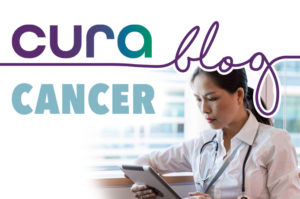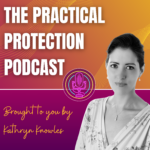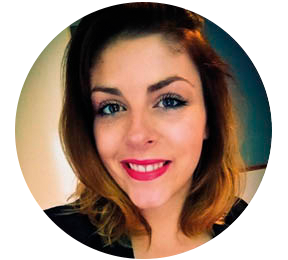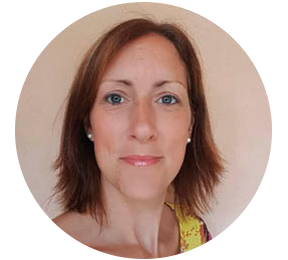Life after cancer - personal protection insurance
Request a Callback
By clicking on submit I / We give consent for you to call me / us on the number provided to discuss my / our financial requirements.
Caring - Understanding - Reliable - Advice
Home » Guides & News » Life after cancer – personal protection insurance

Life after cancer – personal protection insurance
Quite often, people that have had a health concern or received some form of diagnosis might start thinking towards the future. One thing many think about is having the right protection insurance in place. A cancer diagnosis can be a huge shock and lead you to wonder about the financial security of you and your family going forward.
Types of insurance
Life insurance, critical illness cover and income protection are some of the most common types of protection insurance. There are different types of these though. For example with life insurance, you might have term assurance which covers you for a certain number of years, or whole of life insurance that will simply carry on until you die whatever that age might be.
Critical illness cover comes in different forms too. Some policies cover more conditions than others and some can include cover for your children as well. As with life insurance there are different ways of setting this up. Most people arrange critical illness cover through a personal policy. This is one that is set up and paid for by you, for you. There’s also something known as group cover that’s arranged by a Limited company to cover its employees.
Income protection policies also come in a complete mix of options. You can build and choose how you want it to work. You pick how much money you want to insure each month, how quickly you want this support of you are I’ll and can’t work, and you can choose how long a claim will pay for.
With each of these types of protection insurance, they can all cost completely different, have different benefit amounts and last different lengths of time.
Why might you need protection insurance?
Many people have a need for protection insurance without even realising.
Life insurance is normally put in place when a person is going to be worse off financially in the event of your death. Such as, if you have a joint mortgage and the other person will be left solely responsible for it, or if you have children or dependants. A life insurance policy will pay an arranged cash lump sum if you were to pass during your policy’s term.
Critical illness cover will also provide a cash lump sum payout, this time if you’re diagnosed with one of their claimable critical illnesses. It could be that you have already claimed on a critical illness policy for cancer. The money from this is paid to yourself, to try and make things a bit easier for you financially, so that you can focus on your health. The money could be used for home improvements, being able to take time off work or just enjoy some time with your family or friends.
Income protection is a policy which is ideal for anybody with an income. This pays you a percentage of your normal monthly income if you were unable to work due to your health. This can be hugely beneficial as it can help pay bills and living expenses whilst you’re not able to earn your usual wage. A general rule of thumb is that if you are working and receiving income, employed or self-employed, you really should consider an income protection policy.
One thing to bear in mind is that life insurance policies don’t usually come with exclusions, but they might have a price increase depending on your circumstances. Critical illness cover and income protection are both known to have exclusions for things such as existing health conditions. Watch out for the wording on these, there’s a big difference between a full cancer exclusion and an exclusion for the specific cancer that you had.
Where to start?
There are a few key ways to apply for protection insurance. Those being direct with an insurer, online using a comparison site or going down an advised route.
When you’re going directly to an insurer or applying online, it’s important to really do your research to make sure you’re getting exactly what you need, as most of the time these don’t provide advice. Often you also won’t see a decision on your application straight away. This is because most insurers will want to see a report from your GP just to get an overall picture of your health and so that they have a full understanding of your diagnosis.
Some people prefer to do things themselves and are quite content going straight to the insurer or applying online, whereas others much prefer an advised route. There are then two options when going down the advised route, which are non-advised or advised.
An example of non-advised could be going to an insurance broker which doesn’t provide advice. You tell them exactly what they want, and they will find the best policy to suit what you have asked for. Advised is different in the sense that there’s a real life person listening to your situation, and making a recommendation which is unique to you and your circumstances. For some, this gives peace of mind that you’re getting a policy that truly suits your needs.
What will insurers want to know?
Each insurer will have their own set of questions, but they’re usually pretty similar. When you go to an adviser such as us here at Cura, we will ask a set of questions so that we can do our research to the best of our ability, and find an insurer that will best match your needs. We will ask:
- What cancer were you diagnosed with?
- When were you diagnosed?
- What was the staging or grading?
- Do you know your TNM score?
- What treatment did you receive?
- How many sessions or over what time period was your treatment?
We might ask slightly different or more questions than this once we know what type of cancer you had.
Insurers will look at all of your answers to make a decision on your application. The reason we like to have the information before applying with an insurer is because insurers look at information differently. For example, an insurer might increase the price slightly for a certain type of cancer whereas another insurer might not increase the price because of the same cancer, and then another might increase the price differently because of the staging or grading. Research is absolutely key.
Group insurance
Each of the things we’ve discussed so far have been about personal protection insurance. There is also group insurance to consider.
Group insurance often doesn’t have the same underwriting rules that personal protection insurance has. Because of the different underwriting rules, you can often get up to a few hundred thousand pounds worth of life insurance before having to provide any information about your health. This is due to what is known as a ‘free medical underwriting’ limit.
This means that even after having had cancer, it is possible for you to be covered by a group life insurance or income protection policy without the premiums being affected or without there being any exclusions on the policy. This is assuming that the amount of insurance that you are eligible for with the policy is within the free medical underwriting. This is getting a bit jargon intense so I won’t go into this more here, but our advisers can go through all of the technicalities with you.
Critical illness cover is slightly different, there still won’t be a price increase due to your cancer (within the free medical underwriting) and you can get a reasonable amount of cover, but they do have exclusion on pre-existing conditions. Meaning that you wouldn’t be able to make a claim on the type of cancer that you have had before, potentially all cancers. If you have a limited company or are in a position to influence a limited company, arranging group cover can be a really good idea.
If you have any questions regarding what has been mentioned in this blog, or you have any questions about something we haven’t covered, our advisors are always happy to help.
Related blogs
Bowel Cancer Awareness Month 2022
Categories: Access to insurance
Client Reviews








Talk to a Friendly Adviser
Get a Quote
What We Offer?
- Experienced and knowledgeable advisers
- Specialist advice with no fees to pay
- Full assistance with all of your paperwork
- Put your policy into trust at no cost
- A dedicated insurance adviser for you
Our Recent Awards





































